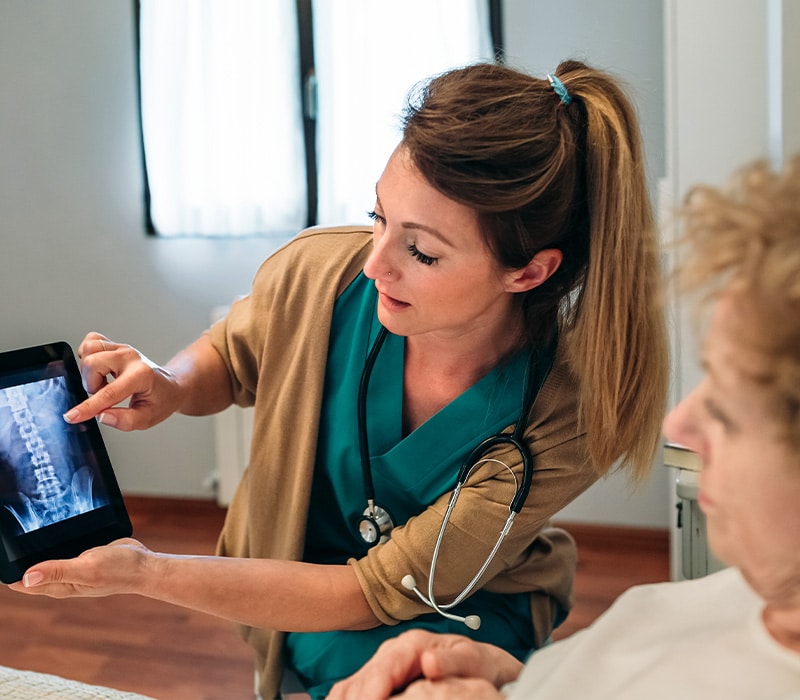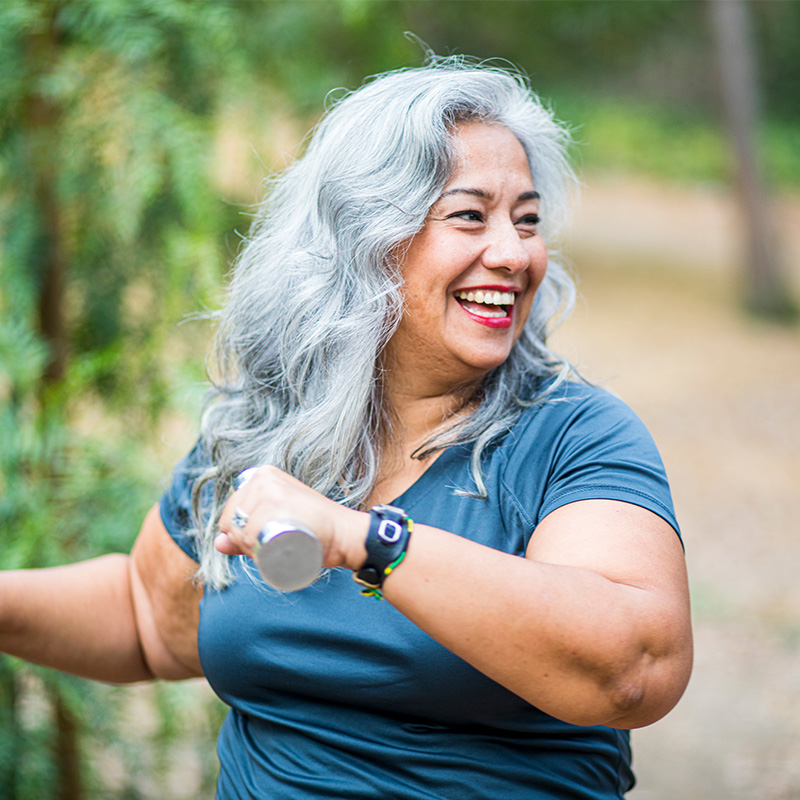10 Symptoms Of Low Estrogen And How To Treat It

Estrogen is the primary hormone that sets women apart from men. While men have it in small amounts, women have far more. To stay healthy and feel good, it’s important to have adequate amounts of estrogen.
Many irritating symptoms typically occur when we’re low on this particular hormone. Keep reading to find out what estrogen does, why we lose it, what the ten symptoms of low estrogen are, and what we can do to treat them.
What Does Estrogen Do?
This hormone is responsible for many bodily functions. It supports the regulation of metabolism, insulin sensitivity, glucose metabolism, and even body weight.
Estrogen is necessary for sexual development during puberty, pregnancy, cholesterol, and bone metabolism. It also helps the uterus lining grow as needed during menstruation and the early stages of pregnancy.
What Causes Low Estrogen Levels in Women?
All estrogen is produced within the ovaries, which means that the health of your ovaries is directly linked to estrogen production. During perimenopause, the ovaries make less estrogen than they used to, and this decline is a natural part of life.
Then, when menopause hits, estrogen production stops. However, other factors can impact estrogen production, such as:
- Kidney disease
- Inadequate functioning of the pituitary gland
- Anorexia
- Too much exercise
- Ovarian failure and ovarian cysts
- Age
- Turner syndrome

10 Signs of Low Estrogen Levels
Symptoms of low estrogen levels range from mild to severe. Take a look at some of the most common symptoms of low estrogen.
1. Breast Tenderness
Sore breasts are a telltale sign of low estrogen levels and are normal. This is because, during the part of your cycle before your period, estrogen levels decrease naturally.
2. Fatigue and Sleep Issues
Estrogen is intimately linked to serotonin, and serotonin makes melatonin. Melatonin is the primary sleep hormone, so if you’ve been sleeping less and feeling fatigued, you could have low estrogen.
3. Irregular Menstrual Cycles
Irregular cycles also point to low estrogen. This is common during perimenopause. When estrogen levels fluctuate, this disrupts the normal menstrual cycle.
4. Disappearing Menstrual Cycles
Estrogen drives your period. If you don’t have enough, your menstrual cycle could disappear completely. This is normal during perimenopause and, of course, menopause.
5. Low Sex Drive, Mood Swings, & Depression
Estrogen triggers serotonin production. Serotonin is a feel-good chemical responsible for keeping you in a good mood. When estrogen is low, so is serotonin, causing depression, mood swings, and a low sex drive. Some studies even show just how essential estrogen is for mental health.
6. Headaches
Headaches, especially migraines, can be a result of low estrogen. This happens because estrogen impacts brain chemicals responsible for pain.
7. Hot flashes and Night Sweats
Estrogen affects the hypothalamus, which regulates body temperature. Low estrogen causes hot flashes and night sweats, two annoying symptoms of menopause and perimenopause.
8. Frequent Urinary Tract Infections
Estrogen helps the lining of your urethra do its job. Namely, to keep unhealthy bacteria out. Low estrogen can cause a thinning of this lining, which makes it easier for bacteria to enter. Urinary infections often follow.
9. Bone Loss
Bone deterioration is another strange thing that happens when estrogen levels are too low. Your bones need estrogen to maintain strength and density; without it, they can become brittle. Low estrogen can increase the risk of fractures because this hormone works with calcium, vitamin D, and various minerals.
10. Vaginal Atrophy
Vaginal atrophy is one of the more severe symptoms of low estrogen and is also quite common. Also known as atrophic vaginitis, this is the vagina’s slow deterioration that comes with age. This vaginal malady is characterized by a thinner, dryer, and even shrunken vagina.
Inflammation often takes over, and sex can become painful. You might be experiencing vaginal atrophy if you are breastfeeding a baby, have entered perimenopause or menopause, have had your ovaries removed, have early onset menopause, and/or are taking medications for uterine fibroids or endometriosis.
In most cases, this condition occurs gradually over a long period. You might not realize it’s happening until years post-menopause. If you have any of the following symptoms, there’s a good chance you have vaginal atrophy:
- You experience pain during sex
- You bleed after sex
- Your experiencing increased vaginal dryness
- Your vagina is itchier than it should be
- Your vagina burns during urination
- You feel an urgency to go to the bathroom
- You can sense your vaginal canal becoming shorter and tighter
How to Treat Low Estrogen Production and Low Estrogen Symptoms
There are a few different types of estrogen treatments available to those with low estrogen levels. Just some of the ways you can improve your estrogen levels include:

Hormone Replacement Therapy or HRT
Treatment for low estrogen levels often includes hormone replacement therapy or HRT. The goal is to replace estrogen that’s been lost. Treatment can come in many forms, and your OBGYN or healthcare professional will help you choose what’s best.
Vaginal rings, estrogen creams, vaginal estrogen tablets, and estrogen patches and pills are all possible forms of hormone replacement therapy for vaginal atrophy and low estrogen.
Contraindications for estrogen therapy include:
- Liver disease
- Breast cancer
- Endometrial cancer
- Blood clots or blood clot history
- Mysterious vaginal bleeding
If you’re not a candidate for estrogen therapy, natural treatments involve using a water-soluble lubricant to moisten the vagina and relieve discomfort.
MonaLisa Touch
MonaLisa Touch is a minimally invasive laser procedure that’s sometimes used for cases of vaginal atrophy. This mild laser treatment works because it triggers collagen production within the walls of the vagina.
Laser treatment also stimulates blood flow and increases lubrication. As a result, the vagina begins to function better. No anesthesia is necessary. Sometimes positive results happen after only one MonaLisa Touch session.
Eat for Hormonal Health
A healthy diet can speed healing, no matter what ails you. You can eat certain foods to support hormonal health and help manage symptoms. Always eat as many whole foods as possible and avoid processed and sugary ones.
Organic veggies and fruits, lots of water and herbal teas, and fibrous foods like apples, pears, berries, avocados, beans, legumes, nuts, and seeds benefit your body.
Exercise is Key

Many studies point to the positive effects of exercise on estrogen metabolism. We should all keep up a steady exercise routine. But, if you suffer from low estrogen, all the more reason to get that heart rate up and blood pumping!
Remember, there’s no one in the world exactly like you. This means, what works for one woman won’t always work for another. Bring loads of love and care to yourself, and pay attention to how you feel.
Self-compassion goes a long way when you’re dealing with hormonal imbalances. Be open with your doctor and tell them how you feel as you seek treatment.
At OB/GYN Associates of Alabama, we can help you understand menopause, hormone imbalances, and the range of treatment options available. Contact us to request an appointment today.
What Health Conditions Can Benefit From Addressing Low Estrogen Levels?
Low estrogen levels can lead to various health conditions, including menopausal symptoms such as hot flashes, vaginal dryness, and mood swings. Additionally, low estrogen increases the risk of osteoporosis by reducing bone density, and it may contribute to heart disease and high blood pressure by affecting blood vessels and cholesterol levels, particularly in postmenopausal women. Vaginal atrophy, mood disorders like anxiety and depression, cognitive decline, urinary incontinence, cardiovascular diseases, weight gain, and overall health can also be affected by decreased estrogen levels.
Contact OB/GYN Associates of Alabama for More Information
Remember, there’s no one in the world exactly like you. This means what works for one woman won’t always work for another. Bring loads of love and care to yourself, and pay attention to how you feel.
Self-compassion goes a long way when you’re dealing with hormonal imbalances. Be open with your doctor and tell them how you feel as you seek treatment.
Thank You For Choosing OB/GYN Associates Of Alabama & SmartFit Weight Loss.
Please complete our form or call us at (205) 271-1600 for general questions or to get started.


